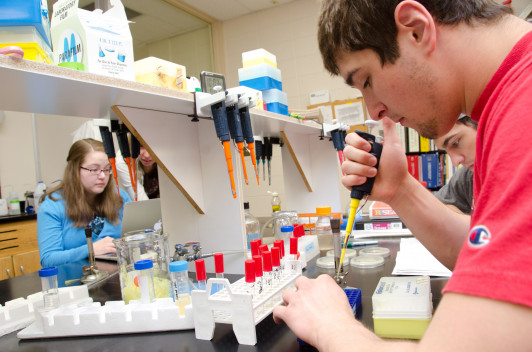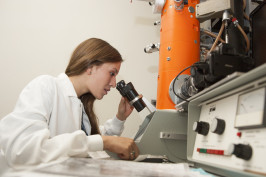
Molecules, Cells, and Organisms: Letting new biology students hit the ground running
Not only do Carthage biology students get to do hands-on research during their first year Molecules, Cells, and Organisms course, they start in their first week of classes.
Every student in the course gets to isolate bacterial viruses called bacteriophages from soil or water samples from Lake Michigan, prepare bacteriophage DNA for sequencing, and examine the viruses using an electron microscope. They also get to name the phages they discover and register them in an actinobacteriophage registry.

“These students get the opportunity to do research right away,” said Prof. Deborah Tobiason. “Not only that, they can get their research published, which is outstanding because it lays a groundwork for them to build on.”

Carthage is one of only 80 schools in the country to have a course like this and is the only school in the Milwaukee and Chicago areas to structure an introductory science course this way.
“Most colleges aren’t even considering doing biology this way,” said Prof. Temple Burling. “The National Science Foundation, the National Institutes of Health and other science education policy places have been calling for real reforms in the way we teach biology to undergraduates. I would say we are on the cutting edge for how we should be teaching biology.”
